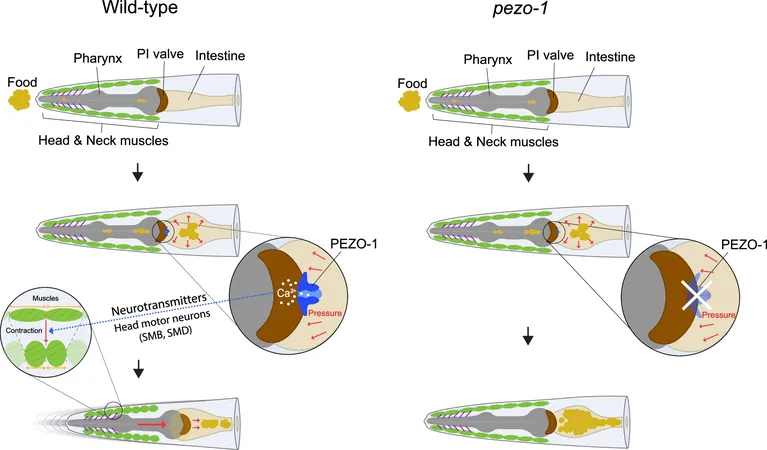
Indulge Without Guilt: Can Chocolate Really Lower Your Risk of Type 2 Diabetes? Harvard Study Reveals Shocking Findings!
2024-12-16
Author: Emily
What the Research Reveals: A Comprehensive Study
In a groundbreaking study published in the BMJ, researchers analyzed the relationship between different types of chocolate—milk and dark—and their correlation with Type 2 diabetes risk. The investigation drew data from three expansive observational studies dating back to the mid-1970s and 1980s, encompassing 192,208 male and female health professionals.
Over 30 years of follow-up, participants reported their chocolate consumption every four years, alongside lifestyle factors and medical histories collected biannually. Notably, during the study, 18,862 participants developed Type 2 diabetes.
The key finding? Those who enjoyed at least five one-ounce servings of chocolate weekly had a 10% reduced risk of developing Type 2 diabetes compared to chocolate avoiders. Dark chocolate proved to be the star of the show, with regular consumers experiencing a staggering 21% lower risk of diabetes, whereas milk chocolate showed no significant link to diabetes risk reduction.
Digging Deeper: Why Dark Chocolate Wins
The positive health effects of dark chocolate can be attributed to its high concentration of flavanols, phytochemicals known for their antioxidant and anti-inflammatory properties. These compounds may play a critical role in protecting insulin-producing cells in the pancreas, helping to improve insulin sensitivity and lower blood pressure, particularly in those at risk of diabetes.
Unlike milk chocolate, which contains about 35% cocoa and has significantly higher sugar content—with an ounce delivering nearly four teaspoons of sugar—dark chocolate’s cocoa content can range from 50% to 90%. In fact, an ounce of 70% dark chocolate contains only about 9 grams of sugar.
Although dark and milk chocolate share similar calorie counts and saturated fat levels—around 170 calories and 7 grams of saturated fat per ounce—dark chocolate's health-promoting flavanols may mitigate adverse effects on metabolic health.
Takeaway: Enjoy Chocolate Moderately for Better Health
If you relish the taste of dark chocolate, it can be part of a balanced diet, but moderation is key—aim for a one-ounce portion. Moreover, to effectively reduce your risk of Type 2 diabetes, focus on establishing a robust lifestyle: aim for a weight loss of 5-7% and engage in 150 minutes of exercise weekly, particularly activities like brisk walking.
The study aligns with numerous previous findings suggesting that dietary habits—including consuming whole grains over refined grains and minimizing processed meats—are invaluable in managing diabetes risk.
So, enjoy that piece of dark chocolate guilt-free this holiday season, but remember that true health changes begin with a broader commitment to lifestyle adjustments!









 Brasil (PT)
Brasil (PT)
 Canada (EN)
Canada (EN)
 Chile (ES)
Chile (ES)
 España (ES)
España (ES)
 France (FR)
France (FR)
 Hong Kong (EN)
Hong Kong (EN)
 Italia (IT)
Italia (IT)
 日本 (JA)
日本 (JA)
 Magyarország (HU)
Magyarország (HU)
 Norge (NO)
Norge (NO)
 Polska (PL)
Polska (PL)
 Schweiz (DE)
Schweiz (DE)
 Singapore (EN)
Singapore (EN)
 Sverige (SV)
Sverige (SV)
 Suomi (FI)
Suomi (FI)
 Türkiye (TR)
Türkiye (TR)